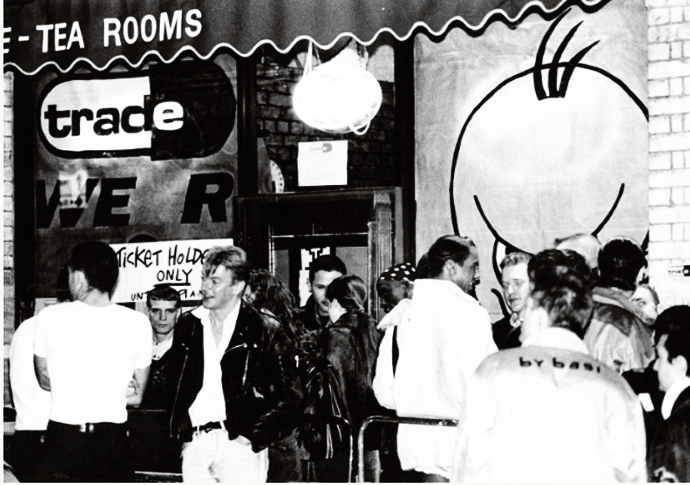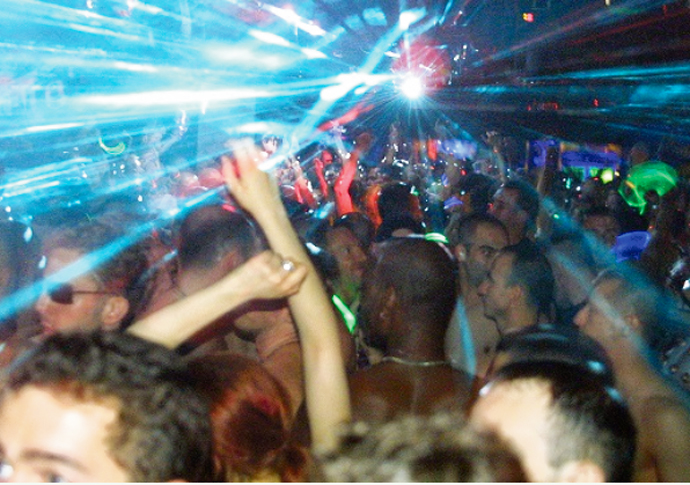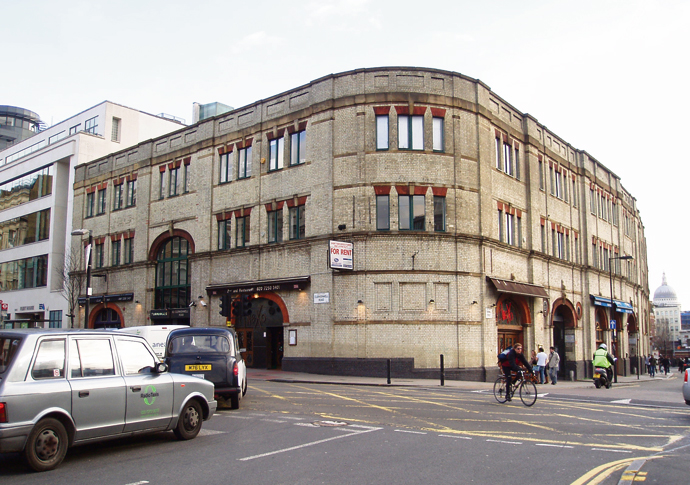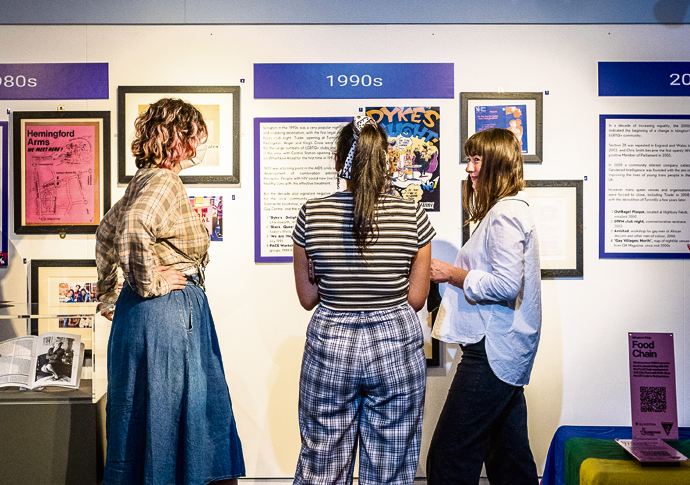Pink plaque for gay club night that ‘changed people’s lives’
Trade’s role in LGBTQ+ history to be recognised
Friday, 6th August 2021 — By Sascha Lavin

The famous Trade night at Turnmills in the early 1990s. Photos: Islington Museum
A LEGENDARY club night is to be recognised with a plaque as part of a project to archive Islington’s LGBTQ+ heritage.
Trade, which was put on at the old Turnmills nightclub in Farringdon, was the first after-hours club for the capital’s gay community.
As the venue has now been demolished, a spot nearby will be chosen for one of the new pink tributes.
The Tribune reported last month how the council-run Islington’s Pride project is organising a trail of 50 plaques to honour important places and people that are part of the borough’s LGBTQ+ history.
Sadler’s Wells will be included, for hosting the Black, Queer and Fierce festival in 1993, as will Central Station, the venue in King’s Cross which is one of the few dedicated LGBTQ+ bars now in Islington.
The Trade club night brings back happy memories for a legion of fans.
It first opened on a Sunday morning in November 1990 as partygoers queued up in Clerkenwell Road, waiting to be led downstairs to a venue which was celebrated as somewhere where everyone could be themselves.
Laurence Malice, its founder, said: “It was hedonistic. I think it was the way you entered into the space.

Trade in the early 2000s
“Everyone was dancing everywhere. It was just a pure celebration.”
Against the backdrop of the AIDs crisis and rampant homophobia, the space that Trade created was considered precious.
Trade DJ Paul Newman said: “Laurence said back then that there still weren’t many places that they felt comfortable in. And I think that was part of it – to create something that people could feel safe in, that they could enjoy themselves in and let go a bit. It was not anything goes, but it was close to it.”
Mr Malice, who later set up the successful Egg nightclub in King’s Cross, is careful to clarify that Trade’s guestlist was not limited to the LGBTQ+ community, adding: “It was a pure melting pot. It started off as a very mixed club and it ended as a very mixed club.”
But he added that by making the club night open to anyone “who didn’t have an attitude problem”, Trade was able to play a part in improving LGBTQ+ rights and provide a safe haven.
Trade’s inclusivity was why the party had so many loyal devotees, like Dewald Meiring who only ever missed one club night in five years.

Turnmills closed in 2008 and was knocked down to make way for an office building
“The biggest freaks in London went there. People just didn’t care who they were, how they dressed. They were just themselves,” he said.
Mr Meiring said he thinks that the plaque is a wonderful idea, adding: “It wasn’t just a club, it changed people’s lives. It changed the way we were and the way we thought about each other. It was so full of love.”
Artist Mark Wardel, who was responsible for the club’s interior, as well as Trade’s iconic logo, is a little more taken aback.
“I find it quite amazing really, when the establishment accepts something like that,” he said.
“It really was such an unbelievable, unbelievably decadent and underground place. But then I suppose these things become sort of respectable.”
He added: “It’s now got a wave of history behind it and it was a completely different era – nothing like that could ever happen again. It’s great, I just wonder whether the council know what actually went on there.”
Every Trade veteran nostalgically notes that there will never be a night like it again. Ravers now come armed with selfie sticks and there are tighter regulations to adhere to.
But Mr Malice wishes that there never again needs to be another club night that has to provide a sanctuary to the LGBTQ+ community.
He said: “Now the whole world has changed, and how fantastic that it has changed.
“Let’s hope it just comes to a point that the sexuality of another person is not an issue.”
Turnmills closed in 2008 and was later knocked down to make way for an office building.
‘Borough cradle of LGBTQ+ rights’

A NEW exhibition that celebrates Islington’s rich LGBTQ+ heritage has opened, writes Sascha Lavin.
The Pride of Place exhibition, at the Islington Museum in St John Street, has more than 4,000 items to tell Islington’s queer history. The show heralds the borough as “the cradle of the LGBTQ+ rights movement in Britain”. Many LGBTQ+ organisations, including Stonewall and the Gay Liberation Front, call Islington home.
The postcode has also hosted some of London’s most infamous LGBTQ+ nights: Trade at Turnmills (see above); the Carved Red Lion; and The Crown and Woolpack, Islington’s first Lesbian disco. Visitors will be able to examine newspaper articles, campaign posters and oral history extracts from pre-1967, before the legalisation of homosexuality, to the present day.
The show has been made possible by Islington Council and Islington’s Pride, a National Lottery Heritage-funded project. The exhibition runs until September 18 and entry is free of charge.